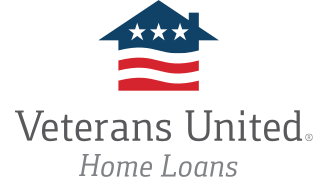VA Loan Debt-to-Income (DTI) Ratio Requirements
See how your debt-to-income (DTI) ratio and credit score affect your VA loan eligibility.
Your debt-to-income (DTI) ratio is a mathematical figure that encompasses all your monthly debts and then divides that by your gross monthly income.
Lenders look at this percentage to assess your ability to manage finances and the likelihood you will repay the mortgage.
Additionally, lenders will take into account the amount of income leftover to ensure you can afford living expenses and have a comfortable life after all debts are paid - this is known as residual income.
There are two different forms of debt-to-income ratios: front-end and back-end.
Front-end vs. Back-end DTI Ratios
| Type of DTI Ratio | Description | Debts Included |
|---|---|---|
| Front-end DTI Ratio | Calculates how much of a person’s gross income goes towards housing costs. | Mortgage payments, insurance, etc. |
| Back-end DTI Ratio | Calculates how much of a person’s gross income goes towards all other debts. | Car loans, credit card payments, student loans, etc. |
How to Calculate DTI for a VA Home Loan
Calculating your DTI ratio for a VA home loan is relatively simple. Follow these equations to have a solid understanding of where your finances stand, and see how much residual income you have at the end of each month:
Debt-to-Income Ratio= (Monthly Debts / Gross Income) x 100
Front-end DTI Ratio = (Monthly Housing Costs / Gross Income) x 100
Back-end DTI Ratio = (All Other Monthly Costs / Gross Income) x 100
What is the Maximum Allowable Debt-to-Income Ratio for a VA Loan?
41 percent is typically the maximum DTI ratio VA lenders will want to see while accessing your finances. This ratio can vary by lender, and if your DTI is above the maximum mark, it’s not automatic grounds for rejection.
Some homebuyers will get away with a DTI ratio higher than the recommended amount if they have enough residual income or other financial factors. Be sure to talk with your home loan specialist to see if you qualify.
Residual Income and DTIs
There is no “set” residual income amount to ensure your eligibility for a VA loan. The total amount of residual income needed by VA lenders depends on several different factors: your total desired loan amount, where you’re buying a home, the size of your family and more.
At the end of the day, every borrower’s situation is different, and lenders will treat their financial history as so. VA home loan lenders just want to ensure that you have enough discretionary income to keep providing for you and your family.


